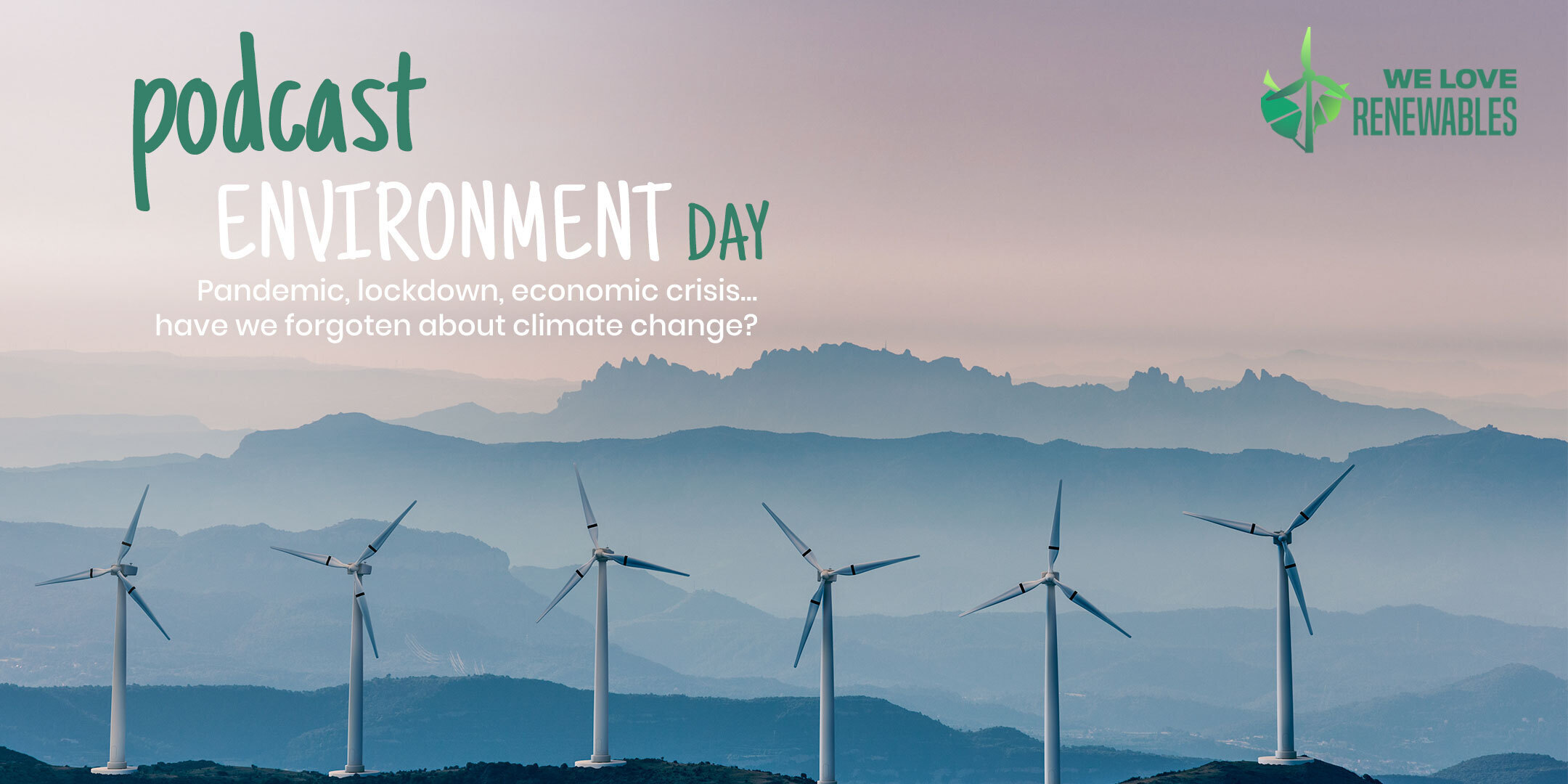In our podcast, we explore how the pandemic has affected our transition towards renewables and our current commitment towards climate change. Some countries are going through difficult financial situations, therefore, our host, Pilar Ortiz, discusses with our invited experts the possibility of achieving our desired agenda and goals by 2050. Listen, read and share to create awareness and transform these words into positive actions for our planet!
The ‘Renewable podcast’ had special guest speakers which are leaders in the transition to a renewable world. During the conversation multiple topics were discussed between them, presenting different points of view.
Sam Gardner, Head of Climate Change & Sustainability at Scottish Power,his work in the last ten years has been focussed on shaping Scotland’s response to climate change.
Marta Martinez Sánchez, head of Studies at Iberdrola’s Energy Policies and Climate Change Division. Her focus is on climate and energy prospective, including analysis of impacts, risks and opportunities, adaptation and resilience and economic policies..
Elizabeth Press, Director of Planning and Programme Support at IRENA. Her organization is an intergovernmental organization that supports countries in their transition to a sustainable energy future, and serves as the principal platform for international cooperation
Angela Francis, Chief Advisor, Economics and Economic Development at WWF-UK. The majority of her work, and her passion, is in renewable energy, energy efficiency and low carbon development.
Countries commitment to environment despite current situation
One of the main topics of the conversation was the impact of COVID-19 to the countries’ commitment to the transition of a renewable energy. We understand the countries are facing a complicated situation and this might have separated the commitment of multiple nations to the cause. However, Marta Martinez thinks the opposite.
“The pandemic should have driven us closer together in the path of climate change. The situation might have made us realize worldwide that we should be doing things in a different way”.
Immediately, Sam Gardner agreed with Marta.
“I agreed with Marta. I would like to add that we must remember the epidemic came during our climate crisis. Now, in UK, we saw over 200 businesses addressed to the prime minister really pushing for a green recovery to the COVID-19 crisis and the public polls made showed the public is still very concern about the climate change”.
“I don’t think the COVID-19 crisis, huge and transformative as it is, has diminished in any way the kind of commitment that we see to the climate change agenda”
Dr. Sam Gardner
Over this topic, we saw a complete agreement regarding the climate change commitment during the pandemic situation. The situation should be driving even further changes needed to improve the climate change situation we are living. Its evident that the first concern of the countries during the pandemic is the well-being of its people. We witnessed how countries supported each other to approach to a common well-being and a fast exit of the common situation. These efforts should not been any different regarding the climate change agenda, and we must use similar measures to achieve our goals: decrease our carbon footprint and prevent climate change.
“We were in a bad path before the COVID-19 situation. We should look at this crisis as an opportunity to show that we actually have better ways of doing things. We should build back better… Have a green recovery”.
Angela Francis.
What does “#buildbackbetter” means?
You might have seen the hashtag #buildbackbetter in different social media. But, what this actually means? . Dr. Sam Gardner claims “It’s a very powerful phrase about our state of intention… We have to ensure that our return is not going to be a return to business as usual because it will take us to record-breaking emission pathway”.
A great number of people agreed we have the opportunity to come out stronger as community. Making people realized that together we can achieve greater things working together is a possibility. Elizabeth Press mentioned that “This is an extraordinary opportunity to have this public publicity input into a healthy recovery. The governments have a unique opportunity to step in and shape policies, so we can have a system to achieve the goal of “decarbonating” in the long term”.
How can renewable energy help to shape this future refer as “new normal”?
“We have a report coming this week showing you can have over 90.000 jobs in building low carbon infrastructure… Those are good jobs which are going to be driven stimulus”, Angela Francis.
Indeed, the new normal has multiple factors to be positive about it. “Renewable energy” could even become the normal word for “Energy”. Such energy is possible now because the impact the COVID-19 had in the economy make governments and companies look to different paths and change things.
“We can compete now. We have different places showing the sustainable energy prices might be cheaper than gas. That has really changed since the last financial crisis in 2008” Marta Martinez.
The technological challenges are becoming less. Technology has been evolving enormously in the past decades and now we are in a position were renewable energy should not be as complicated or expensive as it was. But, we know the challenges are not technological. The barriers are now in politics and in us, as society. In which Dr. Sam Gardner made clear his point of view.
“We should therefore have confidence in our ability to cultivate this transition is increasingly not a technological challenge, but what of politics and societal kind of adoption”, Sam Gardner.
To have a deeper appreciation of the topic listen to our podcast. However, we can agree that the conclusion is unanimous. The COVID-19 situation has changed the world and has “offered” an opportunity to start again with changes that allow us to become better and achieve our goals of 0% carbon footprint in the future.
The “new normal” are going to give a more important role to the renewable energy. COVID-19 as terrible and dramatically as it has been, has not taken the scoop away from the climate change and the importance of renewable energy. Now the time is right and the economy as affected as it is, provides an opportunity to approach to new ways of doing change and make them something constant. We realized how fragile and delicate our system is. We now have the opportunity to modify it and shape it in something better.
“We need to really approach this as a system change. Everything is super important, but there has to be a part of something a lot bigger”, Elizabeth Press.

